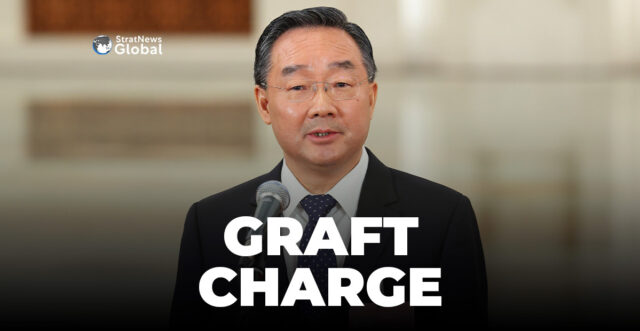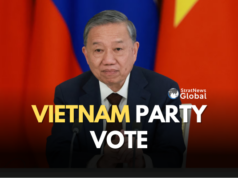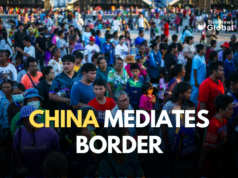China’s Minister of Agriculture, who is currently under scrutiny by Beijing’s anti-corruption agency, has been removed from the ministry’s leadership list on their website. Analysts suggest that this development could potentially delay China’s initiatives related to food security.
Tang Renjian, 61, was placed under investigation for “serious violations of discipline and law” by the Central Commission for Discipline Inspection (CCDI) and National Supervisory Commission, according to an official statement on Saturday. The phrase is CCDI’s typical euphemism for corruption.
The move to investigate Tang, also the head of China’s food security campaign, was unusually swift.
“Once an investigation like this is announced it is essentially a foregone conclusion that the official will be removed from their role,” Even Pay, an agriculture analyst at Trivium China, said on Monday.
The agriculture ministry did not immediately respond to a Reuters request for comment.
Under Tang, the ministry had stepped up its food security policies and will on June 1 implemented a new law aimed at ensuring the self-sufficiency of grains.
Analysts said Tang’s removal is unlikely to cause major changes to China’s food security goals, but may delay its implementation.
“There is a risk that turmoil within the ministry as a result of Tang’s investigation could slow down implementation timelines or result in further difficulty for officials that worked closely with Tang, depending on the focus of that investigation,” Pay said.
“Still, because food security is so important to Xi Jinping, it is unlikely that major disruptions or delays will be tolerated.”
While the policy direction for food security is jointly coordinated by several ministries and departments, the agriculture ministry is the main body overseeing the rural economy.
“His downfall follows serious economic decline in rural areas in recent years,” said Ma Wenfeng, senior analyst at Beijing Orient Agribusiness Consultancy.
China is the world’s largest buyer of grains, pork and other agriculture. The agribusiness industry is watching the drive toward food self-sufficiency in the world’s second largest economy since it could reduce China’s import demand.
LAST APPEARANCES
Tang last appeared in public on Wednesday at a conference on rural talent in northwestern Shaanxi province.
Last year, before the formal removal of Li Shangfu and Qin Gang, China’s former defence and foreign ministers, the two men were missing for months. Their disappearances raised questions from diplomats about abrupt changes in China’s leadership at a time when the country’s economic growth is sluggish and relations with the United States have soured.
The State Council, or cabinet, still listed Tang as the agriculture minister on its website as of Monday afternoon.
Tang’s name also yielded no search results on his ministry’s website except for a statement about his investigation.
In a statement on Saturday, the top Communist Party leadership within the agriculture ministry “unanimously” declared their support for the decision to investigate Tang.
“We must severely punish corruption with a zero-tolerance attitude,” the statement said.
Tang was governor of the northwestern province of Gansu from 2017 to 2020 before being named minister of agriculture and rural affairs in December 2020.
With Inputs From Reuters
Research Associate at StratNewsGlobal, A keen observer of #China and Foreign Affairs. Writer, Weibo Trends, Analyst.
Twitter: @resham_sng





